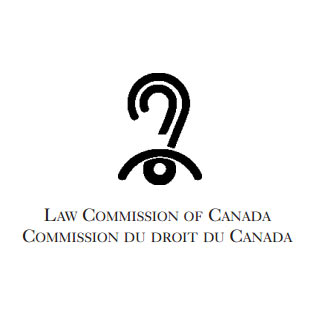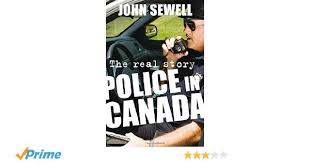Justice as Sanctuary Part Three
C.B. Macpherson: A Retropspective
I had not been a reader of C.B. Macpherson up until the time of his death in September of 1987, but I knew enough of his reputation, and the scale of his influence within political science in Canada and around the world to think that Ideas should pay tribute to someone who had clearly been one of the outstanding scholars and thinkers of his generation. One of the pleasures of preparing the series was reading Macpherson - at last - and coming to share the assessment of so many of his contemporaries and students. One of them, Ed Broadbent, then the federal leader of the New Democratic Party, thought of him "one of the great thinkers in the democratic tradition" - not just one of the great Canadian thinkers, Broadbent added, but a contributor to the great tradition of political thought "stretching from Marx and Mill up to the present." Doing the interviews, once I had boned up on my Macpherson, was an equal pleasure. So many people acknowledged and appreciated Macpherson as an interpreter of modern political thought that I easily found enthusiastic interlocutors. Their tributes follow...
C.B. Macpherson: A Retrospective, Part Two
History and the New Age
In Between Two Ages, the first long series I did for Ideas in early 1981, I began to explore the unique character of our historical moment, and to advance the idea that only a radical change of mind could respond to its demands. Three years later, I got a chance to follow up that initial effort with the present series. Its organizing image or paradigm is the idea of a new age – the way in which I then spoke about my dawning recognition that received social and political forms are quite unable to grasp humanity’s new situation. The intervening thirty-four years have made me more tentative, but, if you take away a certain brash, post-1960's confidence that a reconciliation between men and women, modernity and tradition, humanity and nature was on the horizon, there is much in that way of looking at things that I would still affirm today. Certainly the sparkling cast I managed to assemble makes this series worth revisiting. Among its luminaries are Northrop Frye, Raimundo Panikkar, Robert J. Lifton, Father Thomas Berry and many others, whose names I have listed below.
One of the characteristic features of the documentary form, as I’ve observed when re-introducing other old series as well, is that many different points of view are made to align and march, more or less, in the same direction. A few years later, I would have treated the many thinkers represented here separately, and tried to understand what was distinctive in each one’s approach. I don’t mean I have papered over their differences here, or that there was anything promiscuous about the way I assembled these particular people. Each one was, in some way, a teacher to me, and each one’s work bore on the themes that I wanted to develop. I mean only that, once one has interviewed so many people, the challenge of integrating them all into a more or less coherent structure, leaves little room for the contextualization of each speaker, or for consideration of all the ways in which they differ from one another, and from the consenus, however rough, that I was imposing on them by smushing them all together in one program.
That said, I still find that these shows make interesting listening. The dramatis personae is as follows:
Part One: Dhyane Ywahoo, Northrop Frye, Joseph Brown, Raimundo Panikkar, Derrick de Kerckhove, Thomas Berry, Ewart Cousins
Part Two: Dhyani Ywahoo, Joseph Brown, Richard Lee, Ashley Montagu, Stanley Diamond, Joseph Campbell
Part Three: Walter Odajnyk, Robert J. Lifton, Ira Progroff, Jean Houston, Richard Moss
Part Four: David Spangler, Northrop Frye, Raimundo Panikkar, Ewart Cousins, Thomas Berry, Matthew Fox
History and the New Age Part Two
History and the New Age Part Three
History and the New Age Part Four
In Search of Security
My old Ideas colleague Max Allen and I would sometimes talk about how much the reputation of a broadcast could depend on its timing. Some programmes, we thought, were sent into the world ahead of their time, others came after their hour had struck, and every now and then there was one was lucky enough to arrive right on time. This series, it seemed to me, arrived on the scene a little before the moment at which it might have received the hearing I would have wished for it. It was made in 2003, and broadcast in early 2004, and seemed to get a little lost in the long shadow of 9/11. A few years later, a critical investigation of topics like policing, national security, risk consciousness and surveillance might have been more welcome.
The occasion of the series was a massive conference. called "In Search of Security," which was organized by the Law Society of Canada and held in Montreal in the winter of 2003. The Law Society is now defunct, discontinued by the government of Stephen Harper, but, at that time, it was doing research and trying to stimulate public discussion on the expansion of the private security industry, both in Canada and world-wide. The Montreal conference addressed this subject extensively, but also went beyond it, as the broad title "In Search of Security" suggests. I built on the conference to create this series. The majority of the interviews were with people I encountered there, but I also added a few voices that were not part of the conversation in Montreal and took up some subjects that were not featured as prominently there as they are in my series.
Thanks are due to Dennis Cooley, then the Law Commission's Director of Research, for involving me in the Commission's work in the first place, and then assembling the international gathering in Montreal that allowed me to create this series. I have indicated the topic of each programme, and the participants, below. A transcript is available on the Transcripts page of the site.
Part One: THE RISE OF PRIVATE SECURITY IN CANADA - Christopher Murphy, Ross McLeod, Domenic Mammoli, Kirk Briscoe, Neil Moran, Robert Buffone, Gaétan Héroux, George Rigakos, Stephen Schneider, Jacques Duschesneau, Dale Kinnear
Part Two: THE RISE OF PRIVATE SECURITY WORLD-WIDE - Vadim Volkoff, Renata Ferraz, Clifford Shearing, Deborah Avant, Christopher Spearin, Peter Singer, Doug Brooks
Part Three: THE THOUGHT OF CLIFFORD SHEARING - Clifford Shearing, Adam Crawford, Marianna Valverde
Part Four: POLICE REFORM - Benoit Dupont, Bob Lunney, David Kennedy, Eli Silverman, Marianna Valverde
Part Five: THE POWER OF THE POLICE - John Sewell, Bob Lunney, Chris Murphy, Susan Eng, Julian Falconer, Shirley Heafey, Philip Stenning
Part Six: SECURITY WITHOUT THE STATE - Vince Del Buono, Benoit Dupont, Pamela Leach, Clifford Shearing, Madeleine Jenneker, John Cartwright
Part Seven: SECURITY CONSCIOUSNESS - Christopher Murphy, Jonathan Simon, Ian Loader, Willem de Lint, Lucia Zedner, Kate Martin
Part Eight: NATIONAL SECURITY IN CANADA - Andrew Mitrovica, Matthew Behrens, Ali Hindy, Sophie Harkat, Barbara Jackman, Michel Juneau-Katsuya, Shirley Heafey, Don Stuart
Part Nine: RISK - Clifford Shearing, Pat O’Malley, Jonathan Simon, Allen Bonner, Kevin Haggerty, Richard Ericson
Part Ten: SURVEILLANCE - Mark Perry, Roch Tassé, Kate Martin, David Lyon, Katherine Lippel






